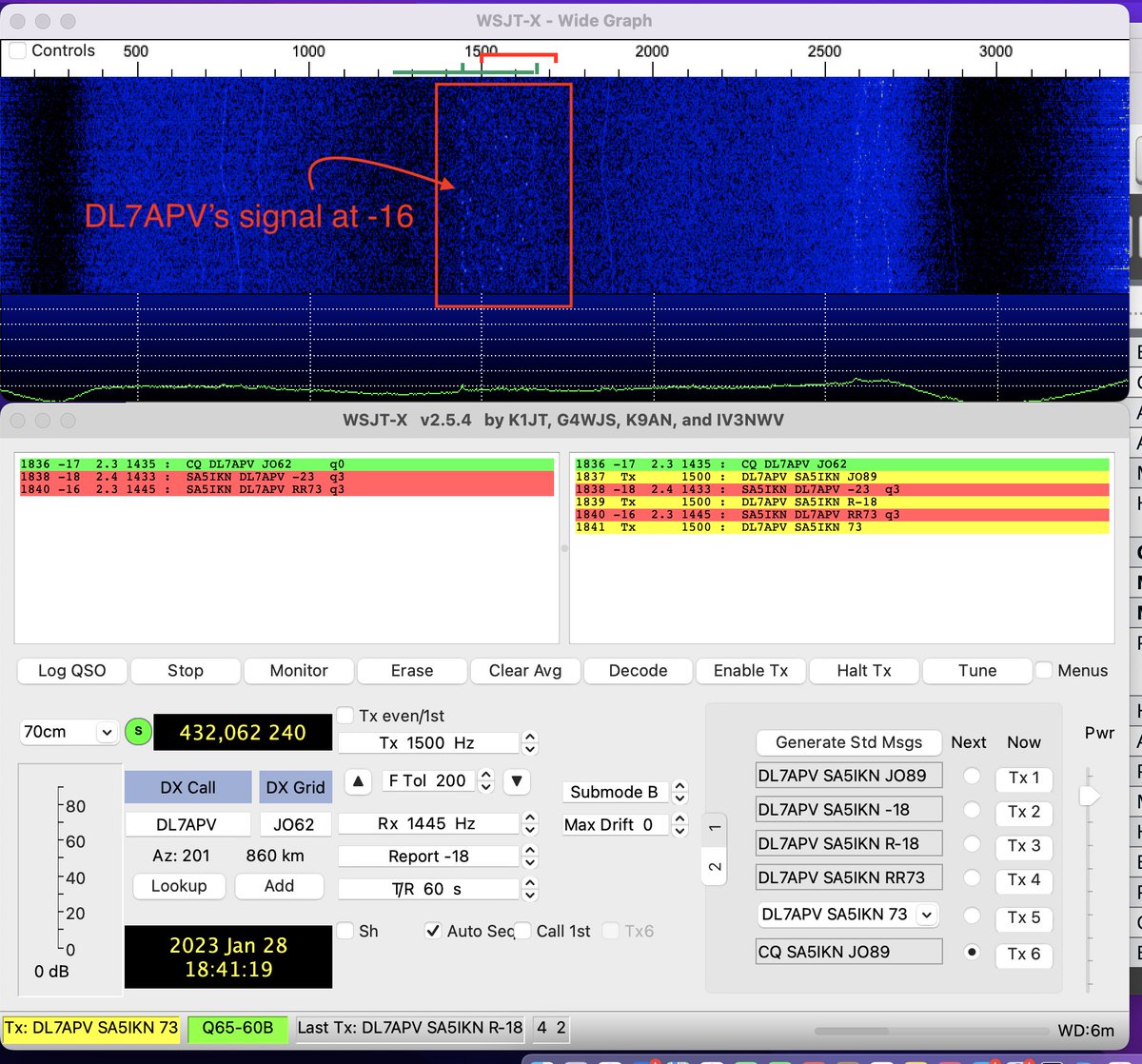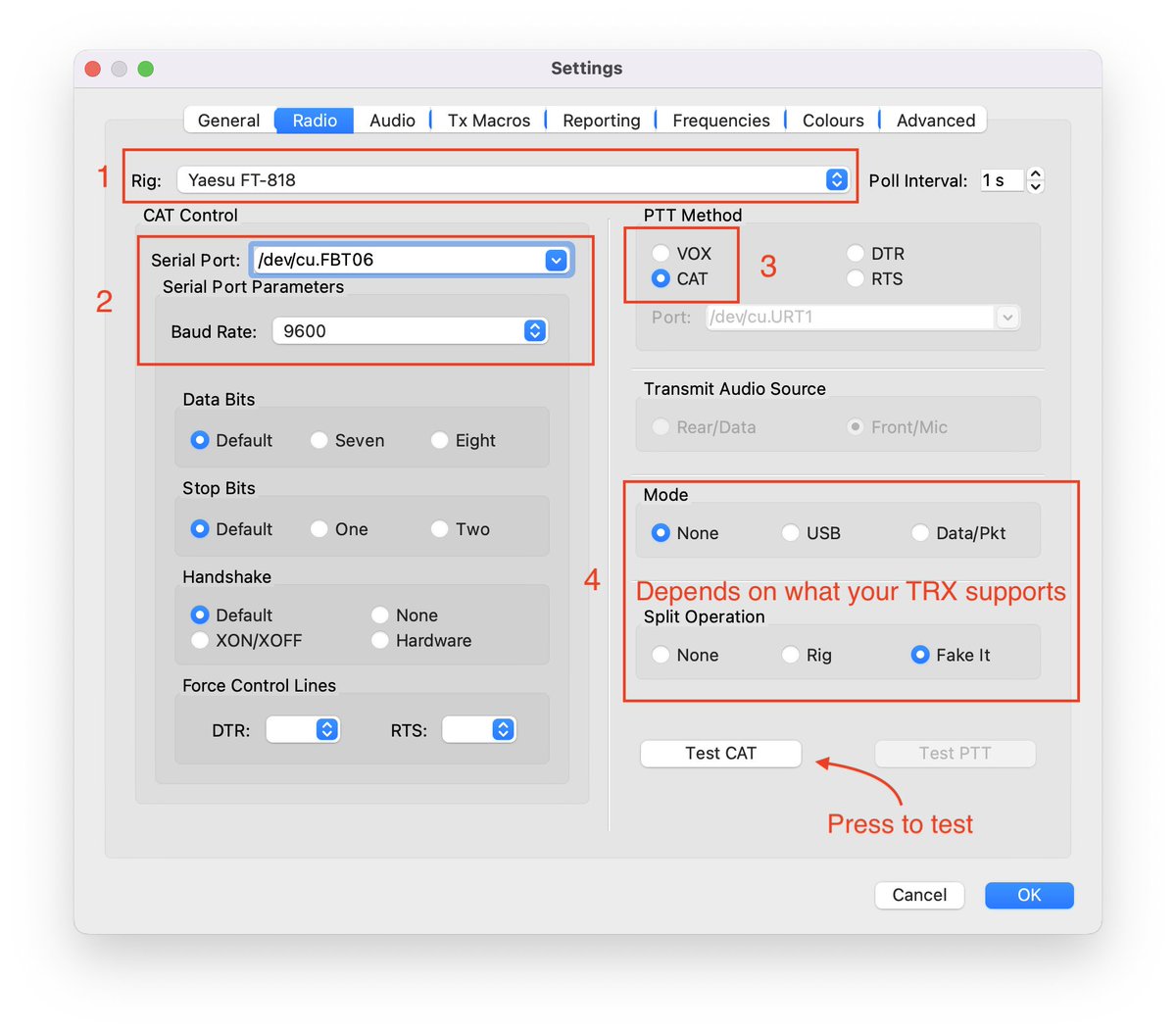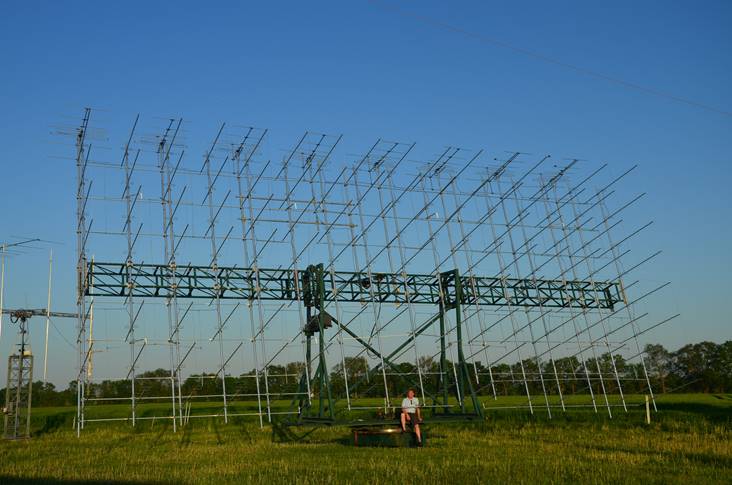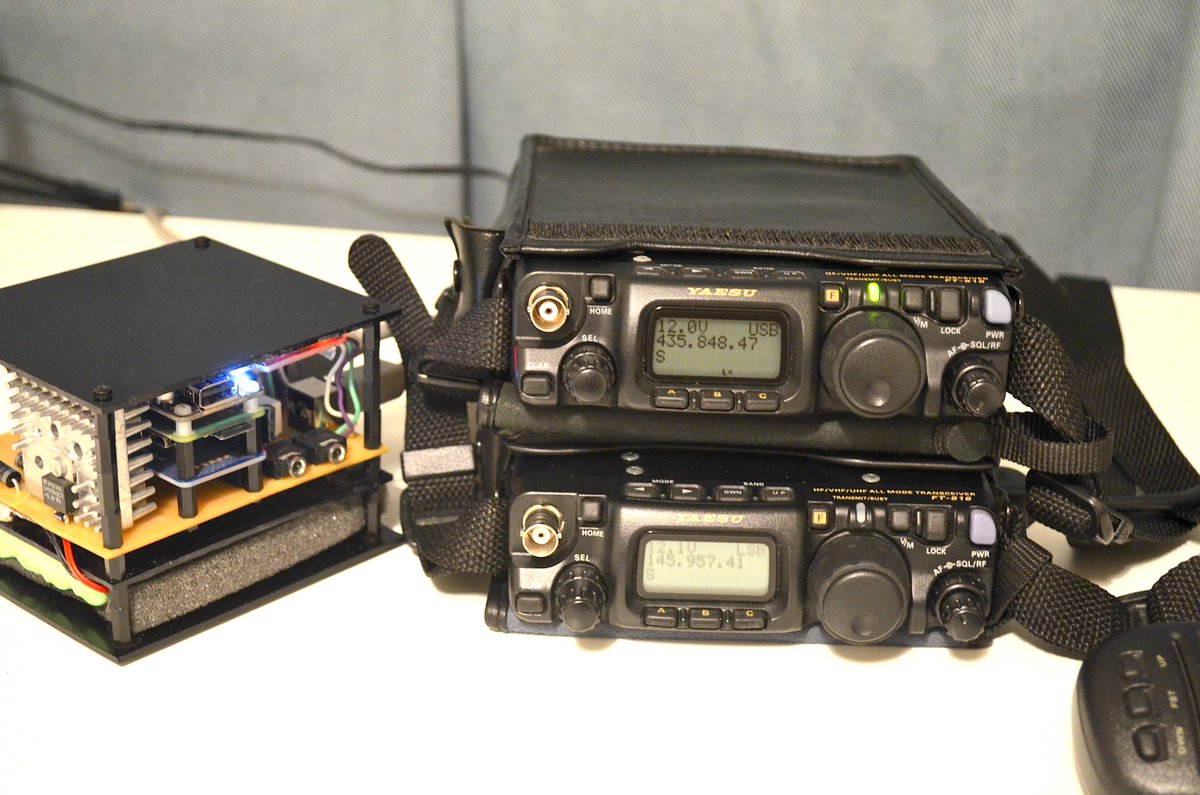
This is a simplified guide describing a bare minimum (!) for #EME operation of WSJT-X in Q65-60B on 432 MHz. A few settings are TRX-specific. Consult to your rig's manual for those
Step 1: Download stable version of WSJT-X at pulsar.princeton.edu/wsjtx.html
#amsat #moonbounce #hamradio
Step 1: Download stable version of WSJT-X at pulsar.princeton.edu/wsjtx.html
#amsat #moonbounce #hamradio

Step 2: Install WSJT-X and open Settings
1) Fill in "My Call" and "My Grid"
2) Tick "Enable VHF and Microwave submodes"
3) Tick "Decode after EME Delay"
1) Fill in "My Call" and "My Grid"
2) Tick "Enable VHF and Microwave submodes"
3) Tick "Decode after EME Delay"

Step 3: Navigate to Radio tab
1) Choose your rig model
2) Choose your serial port and baud rate
3) Choose CAT as PTT
4) Mode and split operation depends on your rig. A minimum non-destructive set: Non and Fake it, respectively
You test CAT by a button
1) Choose your rig model
2) Choose your serial port and baud rate
3) Choose CAT as PTT
4) Mode and split operation depends on your rig. A minimum non-destructive set: Non and Fake it, respectively
You test CAT by a button

Step 5: Choose Q65 mode and
1) 70cm
2) Signal level indicator should be green
3) Submode B
4) T/R 60
5) Double check that you get Q65-60B
6) Set power according to ALC of your rig

1) 70cm
2) Signal level indicator should be green
3) Submode B
4) T/R 60
5) Double check that you get Q65-60B
6) Set power according to ALC of your rig


Step 6: Check Astronomical Data under View
1) Set Doppler tracking
2) Constant frequency on the Moon

1) Set Doppler tracking
2) Constant frequency on the Moon


Written using WSJT-X 2.5.4 for MacOS. On Windows and Linux the process of setting the program up will look similar
@threadreaderapp
unroll
unroll
• • •
Missing some Tweet in this thread? You can try to
force a refresh






















